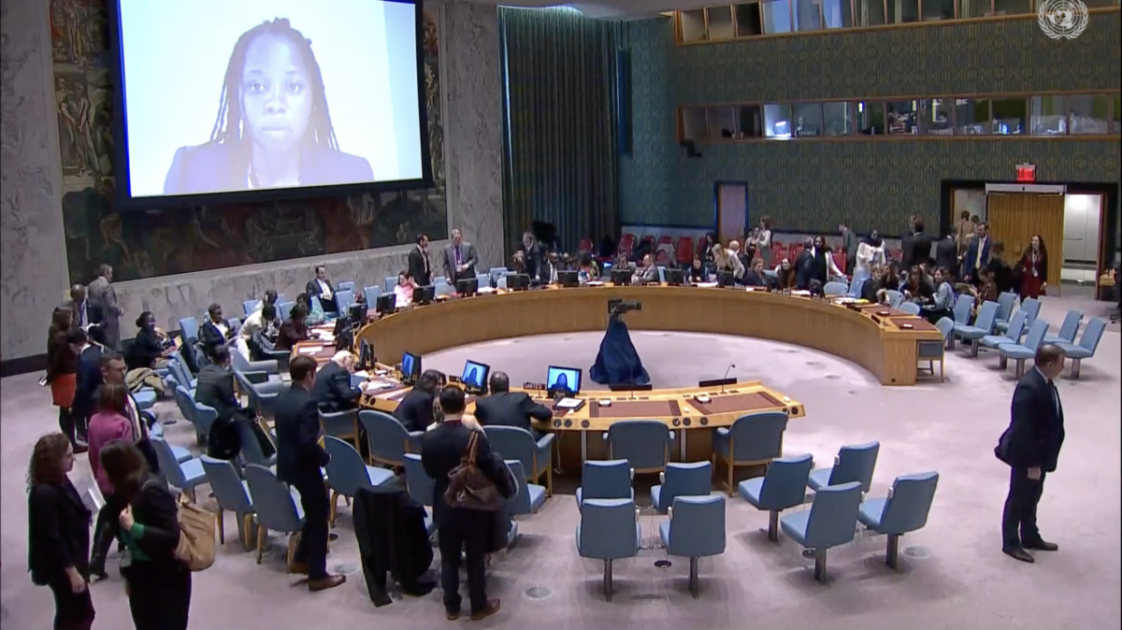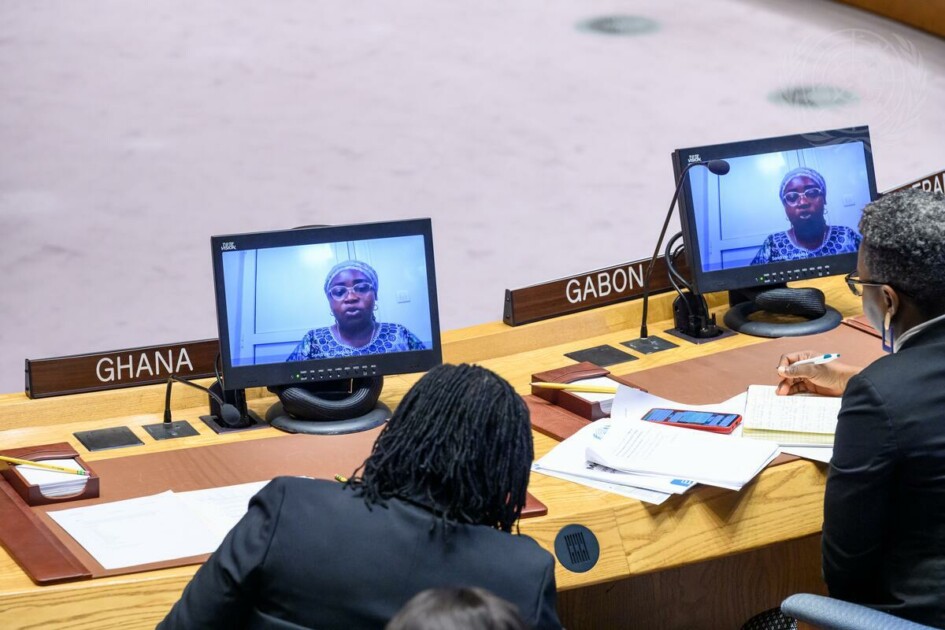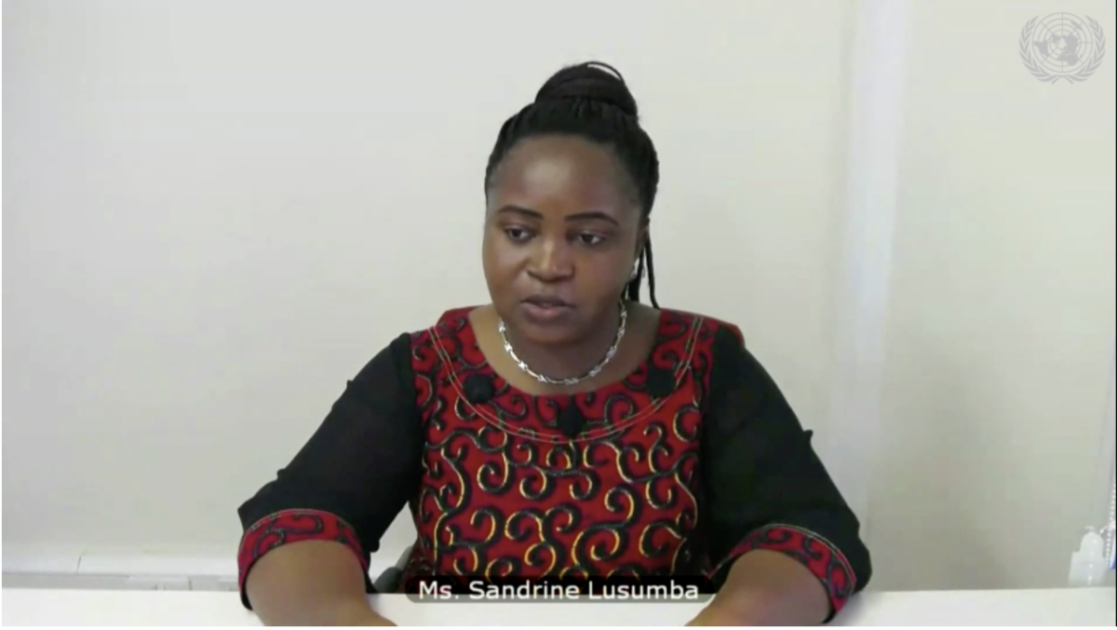Democratic Republic of the Congo
Women in the Democratic Republic of Congo continue to face widespread sexual violence, disease, and displacement in conflict situations arising from clashes between dozens of armed groups. Often, sexual violence and rape are used as terror tactics and weapons of war, and despite the ratification of the Convention on the Elimination of All Forms of Discrimination against Women (CEDAW) and the Women’s Platform for the Peace, Security and Cooperation Framework, women are still largely underrepresented in peacebuilding efforts. Additionally, women activists face rape as a form of torture by government actors who disagree with their political activity. The United Nations Organization Stabilization Mission in the DRC (MONUSCO) aims to provide protection for civilians, including reducing the threat of armed groups perpetrating sexual and gender-based violence, monitoring and reporting on sexual violence and ensuring women’s participation in stabilization and national political dialogue.
Democratic Republic of the Congo
Women in the Democratic Republic of the Congo continue to face widespread sexual violence, disease, and displacement in conflict situations arising from clashes between dozens of armed groups. Often, sexual violence and rape are used as terror tactics and weapons of war, and despite the ratification of the Convention on the Elimination of All Forms of Discrimination against Women (CEDAW), and the Women’s Platform for the Peace, Security and Cooperation Framework, women are still largely underrepresented in peacebuilding efforts.
Additionally, women activists face rape as a form of torture by government actors who disagree with their political activity. The United Nations Organization Stabilization Mission in the DRC (MONUSCO) aims to provide protection for civilians, including reducing the threat of armed groups perpetrating sexual and gender-based violence, monitoring and reporting on sexual violence and ensuring women’s participation in stabilization and national political dialogue.
Current and Past Recommendations to the UN Security Council (Monthly Action Points)
As the Security Council discusses the recent report of UN Organization Stabilization Mission in the Democratic Republic of the Congo (MONUSCO), issues related to women’s meaningful participation should be discussed alongside critical protection concerns, including in the context of inquiring regarding updates on the implementation of the second NAP on Resolution 1325 (2000). Protection of civilians (PoC) continues to be MONUSCO’s priority, as such the Security Council should inquire as to how protection measures are gender-sensitive and consider the specific protection needs of women and girls. There has been a noted increase in SGBV perpetrated by armed groups, as well as State forces, and women continue to face barriers to accessing justice, reparations and victim support services (CEDAW/C/COD/CO/8). A draft law on reparations for victims of SGBV lapsed last year and women’s civil society have not been consulted on any further legislative efforts to address the gaps in victim reparations (Madre). In 2019, the UN SRSG on Sexual Violence in Conflict visited centers in DRC that provide medical and psychological care to survivors of SGBV (MONUSCO). Civil society organizations reported to her that “sexual violence continues to be systematically planned to destroy women” and victims in remote areas lack access to services” (SRSG on SVC). There is an urgent need to address the lack of timely and adequate multi-sectoral assistance for survivors of SGBV, including medical and psychosocial assistance and legal support. The lack of a legal framework criminalizing intimate partner violence and marital rape has implications for addressing conflict-related SGBV as survivors/victims can face violence from perpetrators in various settings (CEDAW/C/COD/CO/8). The Council should request updates from senior leadership on MONUSCO’s efforts to address this issue, including specifically the extent to which the mission has consulted with, or plans to consult with, women’s civil society organizations in supporting the Government to pass a comprehensive reparations law that eliminates barriers to reparations for survivors/victims of SGBV, ensuring full compliance with court-ordered reparations and assisting the Government to add intimate partner violence and marital rape into its penal code. Further, the Council should request updates on the extent to which MONUSCO is supporting local women’s groups and the Government in providing services to address SGBV, including comprehensive medical, psychosocial, legal and socioeconomic assistance which is inclusive of persons with disabilities and LGBTIQ+ people (CEDAW/C/COD/CO/8).
Relevant Resources









